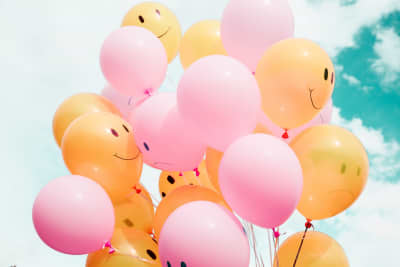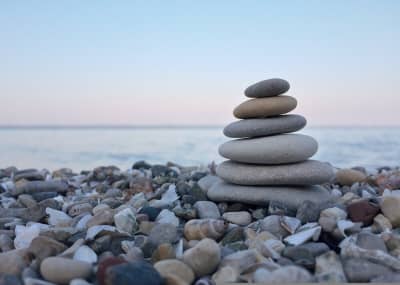In 1969, Dr Elizabeth Kϋbler-Ross published a graph which plotted her patients' reactions over time as they faced changes brought about by life-threatening illness. Since then, her model has been widely used by many organisations to track and manage change in every environment.

We are in the middle of the biggest change the world has ever seen in peacetime. We should not underestimate it. In no other time has the population been denied all physical human contact outside their immediate household.
In my blog, "Lockdown," I shared how severely I have been struggling with this change. From the comments, I find I am not alone.
After I had submitted that blog, I had a call with a good friend who is a careers coach. We discussed my feelings, and she introduced me to the Kϋbler-Ross model. It was so enormously helpful I want to share it with you all.
The graph above shows how our emotional state evolves over time as we process the change.
The first stage in our reaction to change is Shock. The speed of this change was utterly bemusing; it took me a few days to come to terms with the fact that this was real, and our world had shrunk suddenly to four walls.
The next stage is Denial. Some of my mother's friends declared that they had lived through the war and they were going to carry on regardless. My own generation tried to shift their lives to a virtual platform, but otherwise to carry on as normal. The schools started to conduct scheduled classes via Zoom.
This stage is inevitably followed by Frustration and Anger. Life cannot go on as normal, as normal has shut down. No shopping; no non-essential travel; no working out at the gym; even the countryside is closed. Working from home becomes a challenge when partners and children are also at home. As for the children's schooling – for most, a disaster! Frustration becomes anger (which is also fear) and blame-seeking: "The Government should have acted sooner!" "The schools should have been better prepared!" "It is all China's fault!"
Then, Bargaining: trying to get around the rules. "Surely I can meet a few friends in the park…" "Staying at my second home is still staying at home..." No – the rules apply to all of us. Slowly, the message sinks in; this is real.
The descent continues into Depression. It may be a kind of depression we do not recognise, because it is new. This is where many of us are. There is no focus or motivation. We find it difficult to get anything done, feel exhausted and may seek solace in alcohol or food. Time seems to slip away. there are no routines; there is no normality. Life is in chaos, and we have nowhere to stand. It is isolating and scary – especially when we feel we are alone. This part of the cycle is the worst, however, and there is hope ahead.
We start to climb the curve again into Experimentation. This is the time we find new routines and new ways of coping. My elder daughter, who craves routine, got a job as an essential worker in a food distribution warehouse. Friends have instigated virtual coffee dates – even virtual parties and board-game evenings. Now I cannot swim, I walk for an hour every morning, and am trying new ways of delivering my services online. There's a long way to go. I'm sure we will all slip back into Depression more than once. But there is a new hope ahead.
The last part of the change curve is Integration. This is the new normal. We start to feel comfortable. We have found ways of coping and we can thrive in this new environment. I cannot give many examples here, because I don't know how it looks; I am not sure any of us are yet fully integrated.
That's the Kϋbler-Ross curve for you. We all travel the curve at different speeds and wherever you are on that curve, please allow yourself full permission to be there. This curve is inevitable and every part of it is normal. We can even be on every part of the curve at once, because we humans are just that volatile and inconsistent! There is light at the end of the tunnel – but that light is not the end of the lockdown and, in the words of the Queen, "We'll meet again." That day will come – eventually – and we will greet it with joy, but the light we're heading for is the flame of human resilience and adaptability.
Be easy on yourselves and remember, "This too, shall pass."
My best wishes to you as we travel together. Take heart my friends, we are not alone: we all have each other.
Mary
A Moodscope member.



Comments
You need to be Logged In and a Moodscope Subscriber to Comment and Read Comments